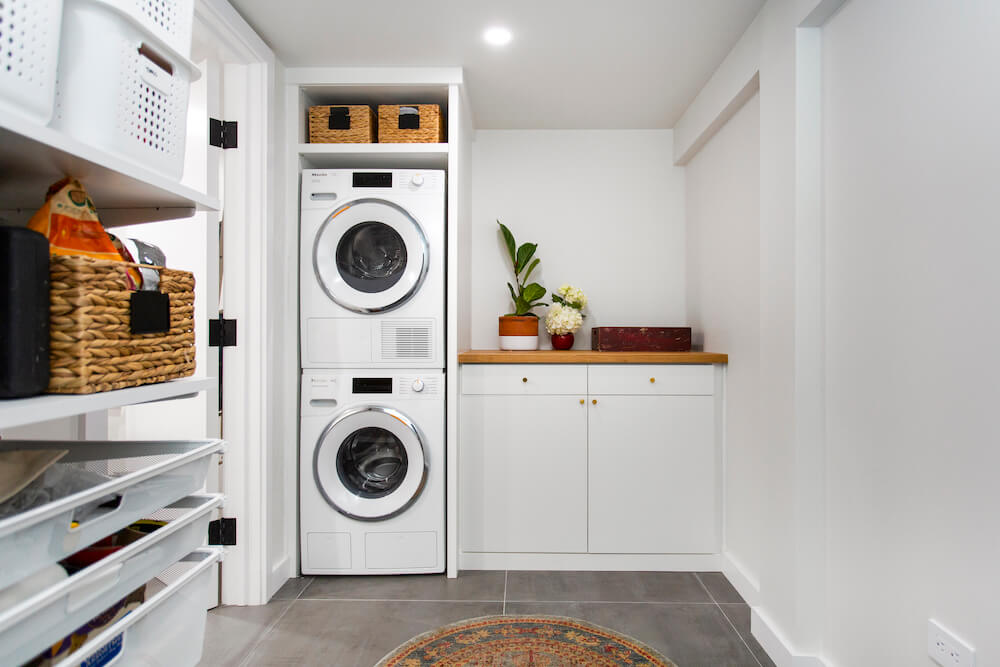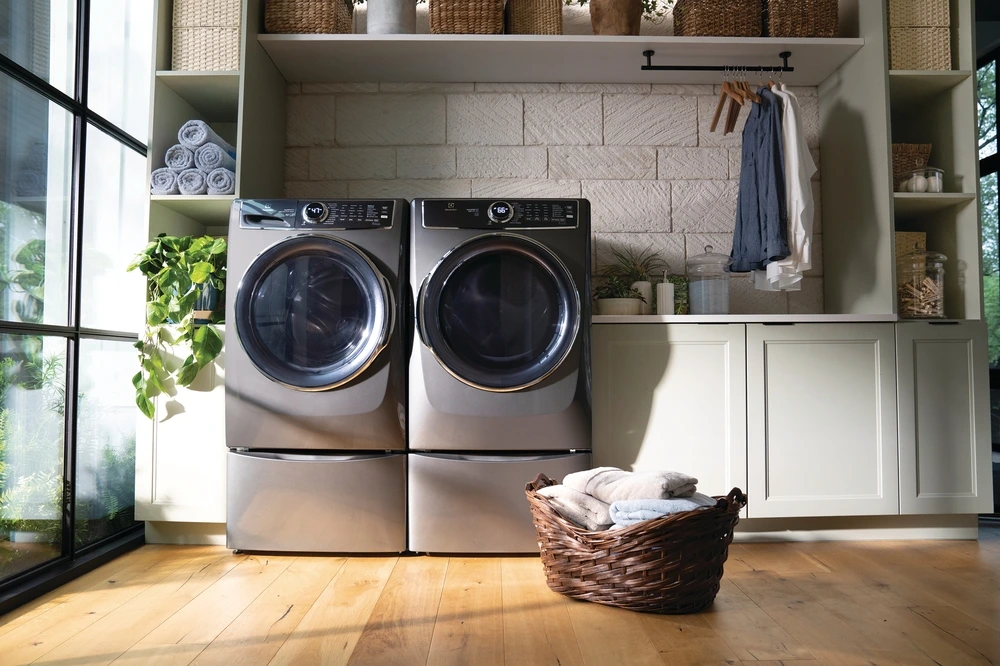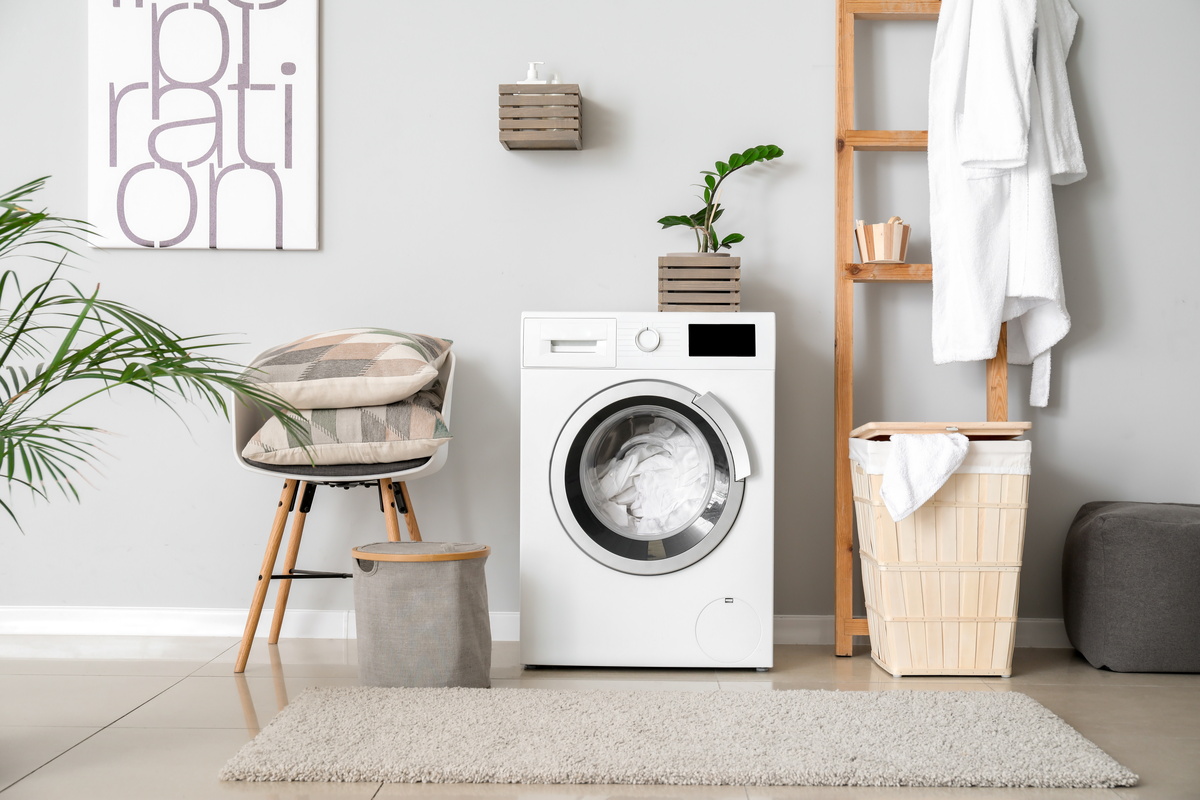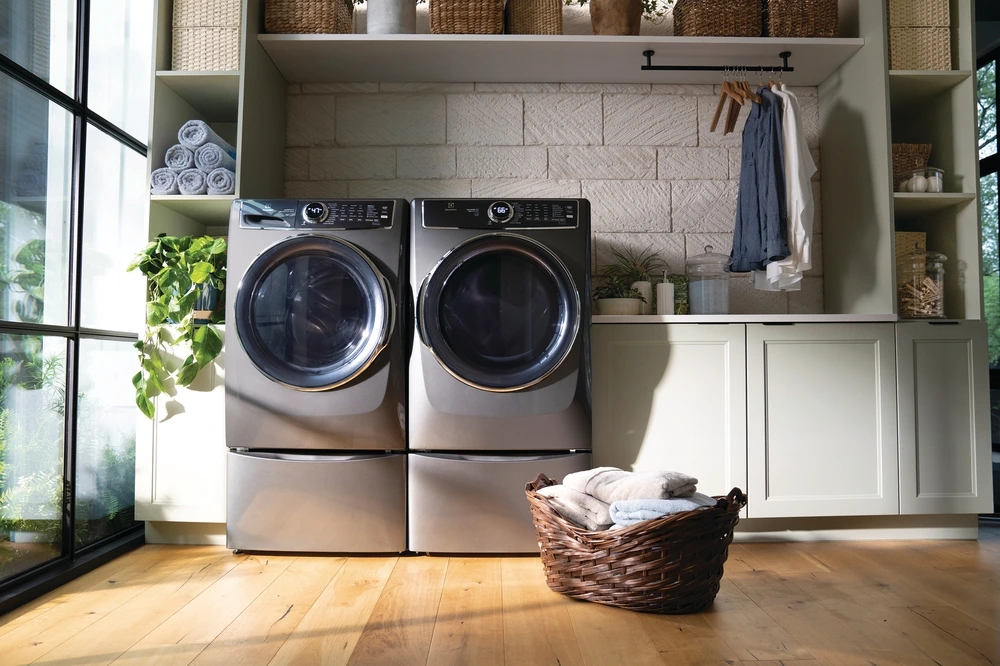Regarding household appliances, washers and dryers are among the biggest energy users. But how much electricity do they consume? The answer depends on the model, load size, and energy efficiency rating. A high-efficiency washer will use less electricity and water compared to older models, while dryers—especially electric ones—can be some of the most power-hungry appliances in your home.
In this article, we’ll break down the typical energy usage of washers and dryers, what impacts their consumption, and how you can cut costs. Whether you’re looking to save on your electricity bill or just curious about how much power your laundry routine requires, we’ve got the details you need. Let’s get started!
How Many Watts Does a Washing Machine Use?
Image Source: sweeten.com
Washers and dryers use about 5% of our home electricity utility bills. While this can be a way of calculating how much electricity they use, there are more accurate ways of doing the math. Remember, the washer and dryer use different amounts of electricity because they perform different functions.
How to Calculate Washer and Dryer Energy Usage
Image Source: friedmansappliance.com
When buying a washer and dryer for your laundry room upgrade, there are power rating tags for both the washer and dryer on the machines to show how much energy they use in wattage. The rating is always in kilowatt-hours (kWh), the amount of energy the machine uses in an hour. Let us use an example.
Say a washer uses 1.5kWh per load, and one kilowatt hour of electricity costs $0.23. To calculate how much electricity the washer uses, we must factor in the time the washer runs. Let’s say you use the washer for four hours. Therefore, the total energy used will be;
1.5kWh by 4 hrs = 6kWh
Since 1kWh = $0.23,
6kWh will be; 6kWh by $0.23 = $1.38
If you run the washer for, say, two hours for every wash cycle and do laundry twice a week every month, you will spend about $11.04 based on the example above.
The same method works for the dryer. Once you have calculated both, you can add the results to find the total consumption. Nevertheless, in a month, you will use more energy running the dryer than the washer, as the dryer has a higher power rating.
Tips to Reduce Your Washer and Dryer’s Electricity Consumption
Image Source: appliancedoctors.ky
1) Use Full Loads
To reduce the washer and dryer’s energy consumption, you can do full loads to reduce the number of times you do your laundry. This simple hack has a great impact on your electricity bill.
2) Air-Dry
When the sun is out, you can air-dry your laundry instead of using the dryer to cut on electricity costs.
3) Run Power-Hungry Appliances During Periods of Low Demand
Some electricity companies give low-demand period discounts, making electricity more affordable between certain hours of the day. You can take advantage of such offers to reduce your energy consumption. While these periods can be during odd hours, like late at night, you can make adjustments to spend less.
4) Use Energy Star Appliances
Energy Star rating on appliances means they are more energy efficient than those without. Additionally, highly Energy-Star-rated appliances consume much less energy than lower ones. So, more stars translate to better energy efficiency.
5) Use Cold Water
The water heater in the washer and dryer uses a lot of electricity. When you switch to using warm or cold water, you immediately cut your electricity consumption compared to hot water. To make this viable and save money, you can use cold water detergents instead of hot water detergents for washing machines.
6) Use Lint Filters
Use lint filters to improve the dryer’s efficiency by preventing blockage. Furthermore, drying timers should be used instead of sensors. Sensors may run the dryer longer than a timer you can set to turn off.
Final Thoughts
Image Source: thesun.ie
A washer and dryer can be less costly when you know the energy-saving tricks to avoid running exorbitant bills. From going for Energy-Star-rated machines to employing useful hacks, you can save money by following the abovementioned ideas.
Remember, the washer and dryer have different ratings; you should approach them separately. The washer uses about 1.5 kWh of electricity, and the dryer uses about 4.5 kWh. The cost per kWh might differ from state to state but ranges between 10 and 30 cents, averaging 23 cents. With this in mind, you can calculate how much electricity your washer-dryer uses.
Frequently Asked Questions
i) Does a washer and dryer use a lot of electricity?
The amount of electricity a washer and dryer use can vary depending on several factors, including the energy efficiency of the appliances, the size of the loads, the frequency of use, and the specific settings you choose. Generally, both washers and dryers are among the higher energy-consuming appliances in a typical household.
ii) How much electricity does a washer and dryer use?
Front-loading washing machines are generally more energy-efficient than top-loading models. On average, a standard front-loading washing machine can consume anywhere from 300 to 500 kilowatt-hours (kWh) of electricity per year. High-efficiency models might use even less energy, often falling within the lower range of that estimate.
Clothes dryers, especially electric dryers, tend to consume more electricity than washing machines. The average electric dryer can use around 1,800 to 5,000 kWh of electricity per year, depending on the frequency of use and the load size. Gas dryers are more energy-efficient, using about half the electricity of electric dryers.
iii) How much does it cost to run a dryer for one hour?
The cost of running a dryer for an hour would depend on the appliance’s power rating. If the dryer is efficient, it might end up consuming less energy. A dryer with a clean filter will also cost you less to run.
A dryer uses about 4.5kWh per drying cycle, which is about $1.03, where 1 kWh on average goes for 23 cents. However, electricity costs depend on where you are in the country, with the costs ranging between 10 and 30 Cents for every Kilowatt hour of electricity.

















